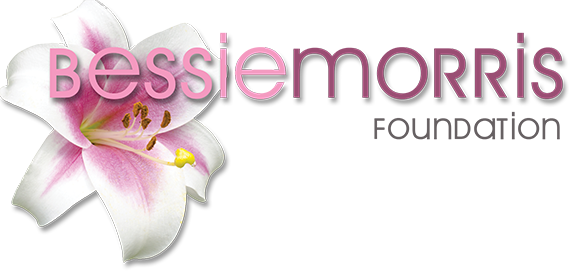
In the Spotlight
Florence Nishida: Growing Vegetables and Community
Co-Founder of LA Green Grounds, Master Gardener, Urban Farming Teacher & Advocate, Botanist, and Mycologist
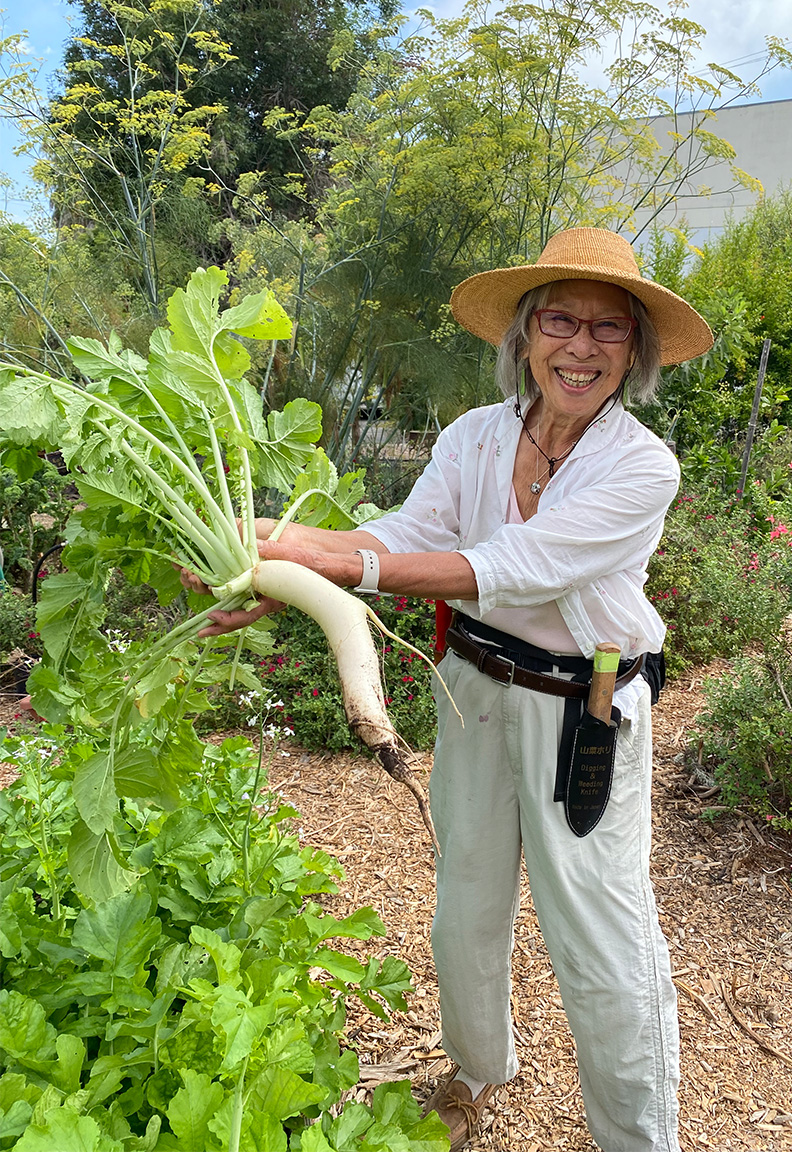
"AFTER I RETIRE"
It was just a tiny article in the LA Times, but it caught her eye. What sparked Florence Nishida's interest was the article's discussion of master gardeners teaching those in poorer neighborhoods how to grow vegetables. “For decades, it has been my goal,” explains Florence, “to have a vegetable garden and a fruit tree on every block in LA.” She remembers sitting in the crook of the avocado tree across the street as a child, surveying all the fruit. That's when the realization first struck her: If every street had a fruit tree in Los Angeles, everyone would have food to eat. She clipped the article on put it in her “After I Retire” folder.
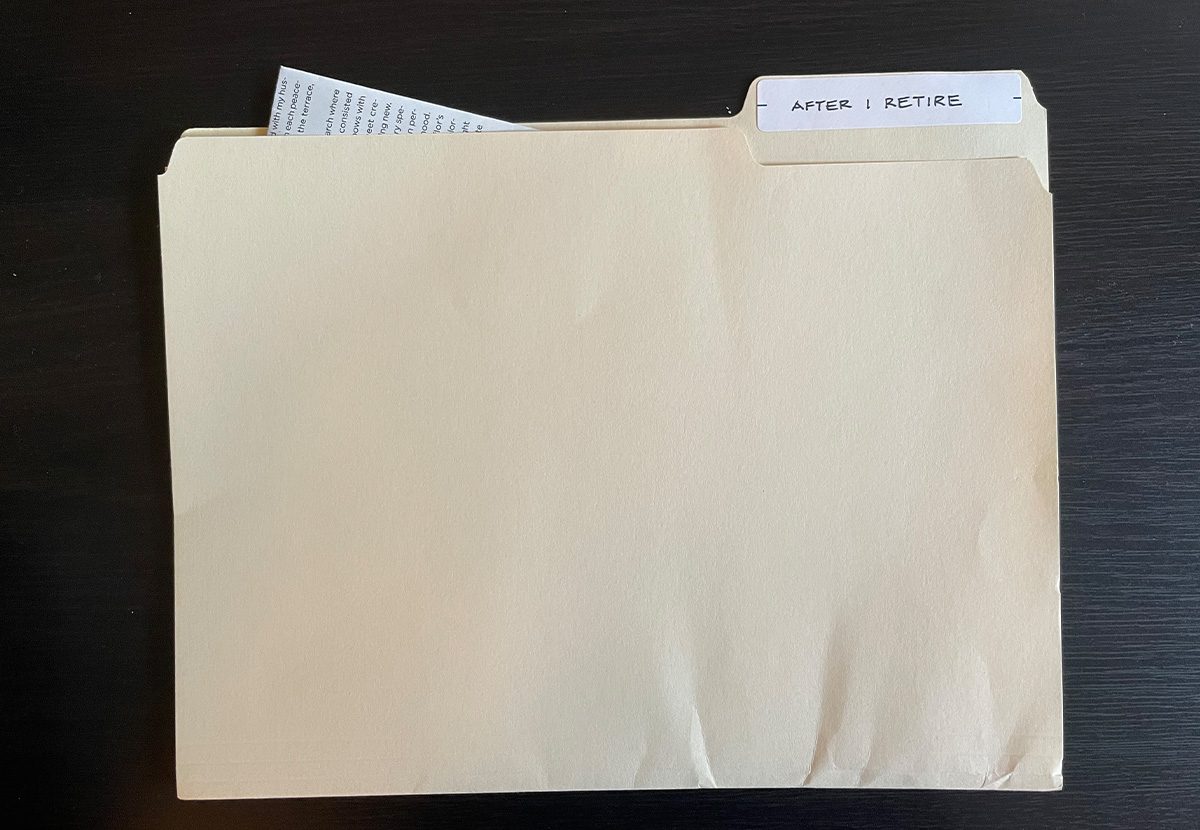
Sometime later after retiring from teaching high school English in Lincoln Heights, being an editorial research librarian for People magazine, and a mycology research associate at the Natural History Museum (NHM), Florence Nishida opened the folder and found one thing: the LA Times article.
In 2008, Florence took classes and became certified as an UC Cooperative Extension (UCCE) Master Gardener (MG). One of the requirements was for MG graduates to lead community gardening projects in underserved parts of the city.
Florence wanted to find a location in her childhood neighborhood to create a teaching garden. After being released from a WWII Japanese-American incarceration center as a child, her family moved to South Los Angeles where the Natural History Museum served as her playground.
Florence knew this population suffered from high rates of diet-related disease that are exacerbated by the lack of healthy food resources. There were very few good markets in the community — it was a food desert.
An urban food desert is defined as a neighborhood with a shortage of decent supermarkets and an abundance of fast-food chains serving highly processed food. The low-income families living here are at risk of unhealthy eating patterns and all the problems that accompany them, e.g., obesity, malnourishment, diabetes, etc.
Florence drove up and down South LA looking for a suitable location to start a teaching garden — she needed indoor classroom space, as well as an outdoor area to grow. Florence's husband Gordon Hendler, who also worked at the National History Museum (NHM), suggested, “Why not talk to the museum?”
Taking his suggestion, Florence submitted a proposal. Her principal goal was to build a teaching garden for the Grow L.A. Victory Garden (GLAVG) Initiative that provides opportunities for Los Angeles residents to access better diet, health, and food security.
The museum representatives thought starting an edible garden was a great idea that could serve as a prototype for others.
In 2010 using pickaxes, Florence and Gordon literally broke ground of the hard-packed area in front of the butterfly pavilion to install four raised beds. It was hard work. Florence became one of the initial master gardeners to teach gardening classes and the GLAVG principles in Los Angeles. The initial garden was so successful it expanded into NHM's Erika J. Glazer Family Edible Garden, a showcase of fruit trees and seasonal plantings.
Since then, Florence has mentored hundreds of community members of all ages and backgrounds.
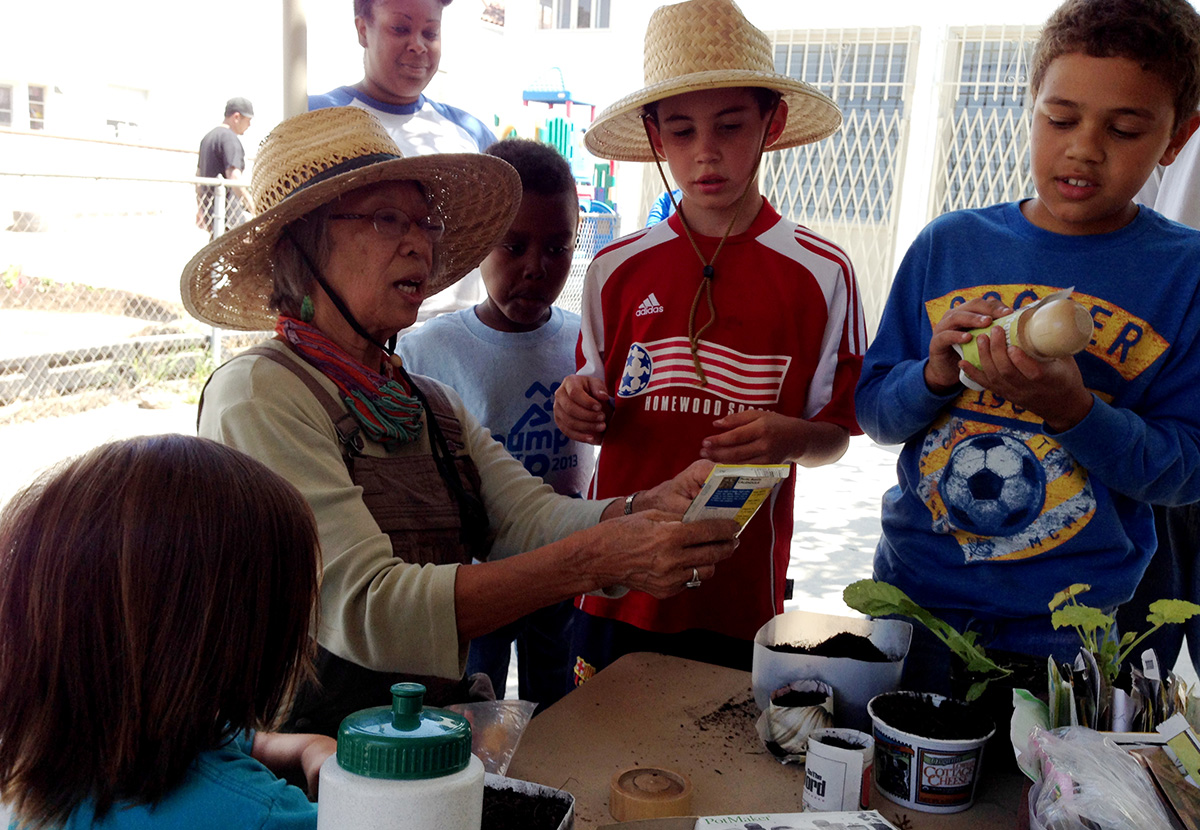
CAN YOU DIG IT?
“The museum was ground zero,” Nishida says now. “It all started from that class.”
Florence's first UCCE class drew students from all over the city, but not many from the immediate neighborhood whom she was trying to reach.
For her second Grow LA Victory Garden class in the fall, Florence recruited museum employees, community members, and USC students. Then, together with two of her students, Florence established the non-profit she envisioned: LA Green Grounds (LAGG).
Dubbed a Dig-In, LAGG took gardening to where people lived. Gardens were to be installed in the front yards to be highly visible to neighbors and passersbys, hopefully inspiring them to create their own food gardens. The goal was to teach residents, through direct practice at their homes, how to start a food garden and grow their own. LAGG's vision is for homeowners to mutually share their bounty; thus, ending the food desert in the community.
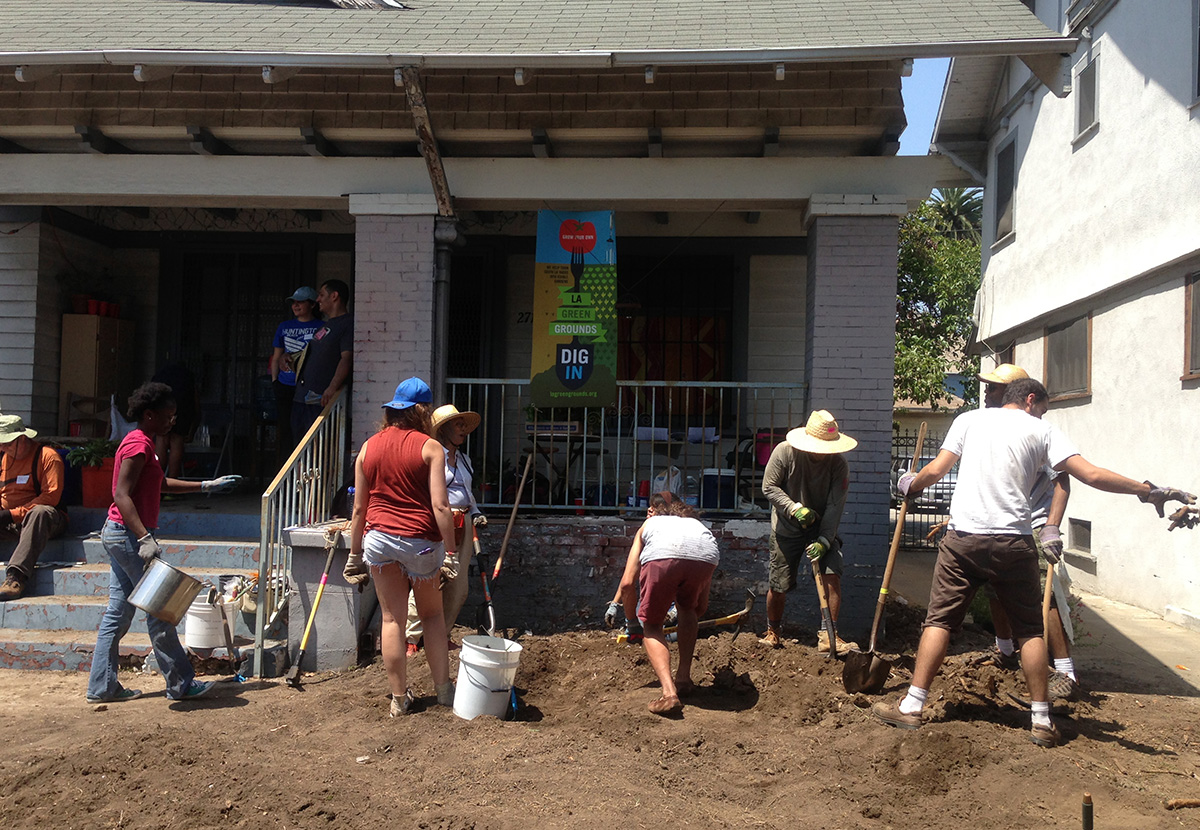
What's a Dig-In? A group of LAGG volunteers converge upon a selected South Los Angeles home with gardening tools, soil amendments, plants and seeds. Together with the residents, LAGG volunteers remove the turf and plant organic fruits, vegetables and herbs in the front yard and parkway. Everyone learns by doing. “We teach how to maintain the garden and make compost. It's all about instruction, demonstration and participation."
The first Dig-In was right off MLK Boulevard by a small group: founders, friends, and spouses. The next one was at St. Mark's Church.
As the word spread, Dig-Ins became very popular. 25, 30 or 40 people or more volunteer to roll up their sleeves and dig in with shovels to help LA neighbors grow their own organic produce.
In the space of the first four years, nearly three dozen food gardens were created with participating residents in South Los Angeles. Currently, LA Green Grounds has installed over 40 dig-in edible gardens.
CHANGING LA CITY ORDINANCES
LA Green Grounds and Florence Nishida were instrumental in persuading the Los Angeles City Council to allow Los Angeles residents to plant edibles in their parkways without a permit in 2013. Florence attended urban agriculture meetings and reached out to city officials. She also persuaded them to expand the list of acceptable plants allowed in parkways. “I'm proud of helping to change the parkway ordinance.”
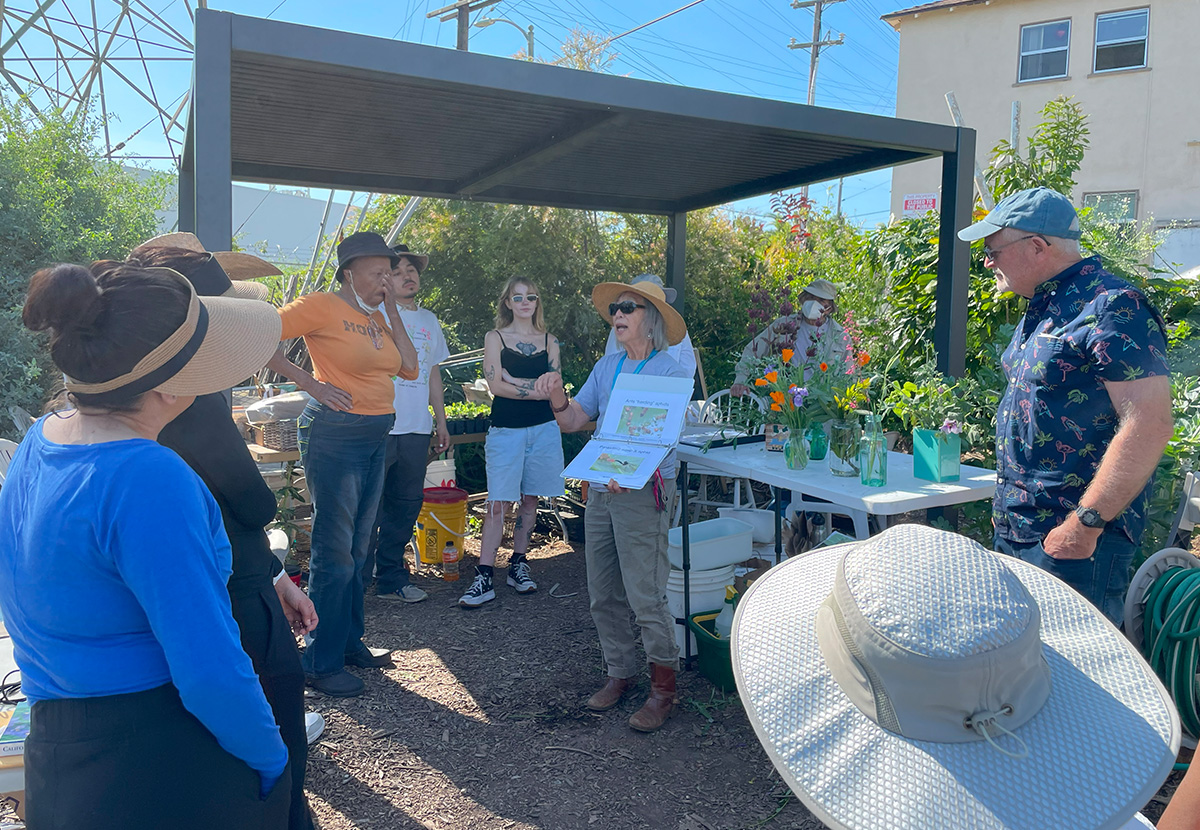
LAGG'S OWN NISHIDA TEACHING GARDEN
While still conducting Dig-Ins, LA Green Grounds is currently more focused on its Teaching Garden that was created in 2016. Named in honor of Florence by the LAGG Board, it is located adjacent to the existing Good Earth Community Garden in the west Jefferson Boulevard area. The 5,400 square foot Nishida Teaching Garden provides a welcoming space where volunteers and South Los Angeles residents can learn the essentials of growing food through weekly hands-on cultivating, harvesting, and sampling a wide variety of edible plants.
Low-cost and no-cost gardening and related classes are offered.
Bordered by fruit trees, succulents, and California native plants, LAGG's teaching garden is Wildlife Habitat Garden certified by the National Wildlife Federation. Visitors are encouraged to observe insects, spiders, and birds feeding on pollen, berries, seeds, and nectar, thus developing an understanding of ecology and appreciation for urban wildlife.
But LAGG is about more than just edible plants. It's also about building a community through connecting in the Garden, Dig-Ins, classes, and multi-cultural celebrations and child-centered gatherings. We share and learn with each other.
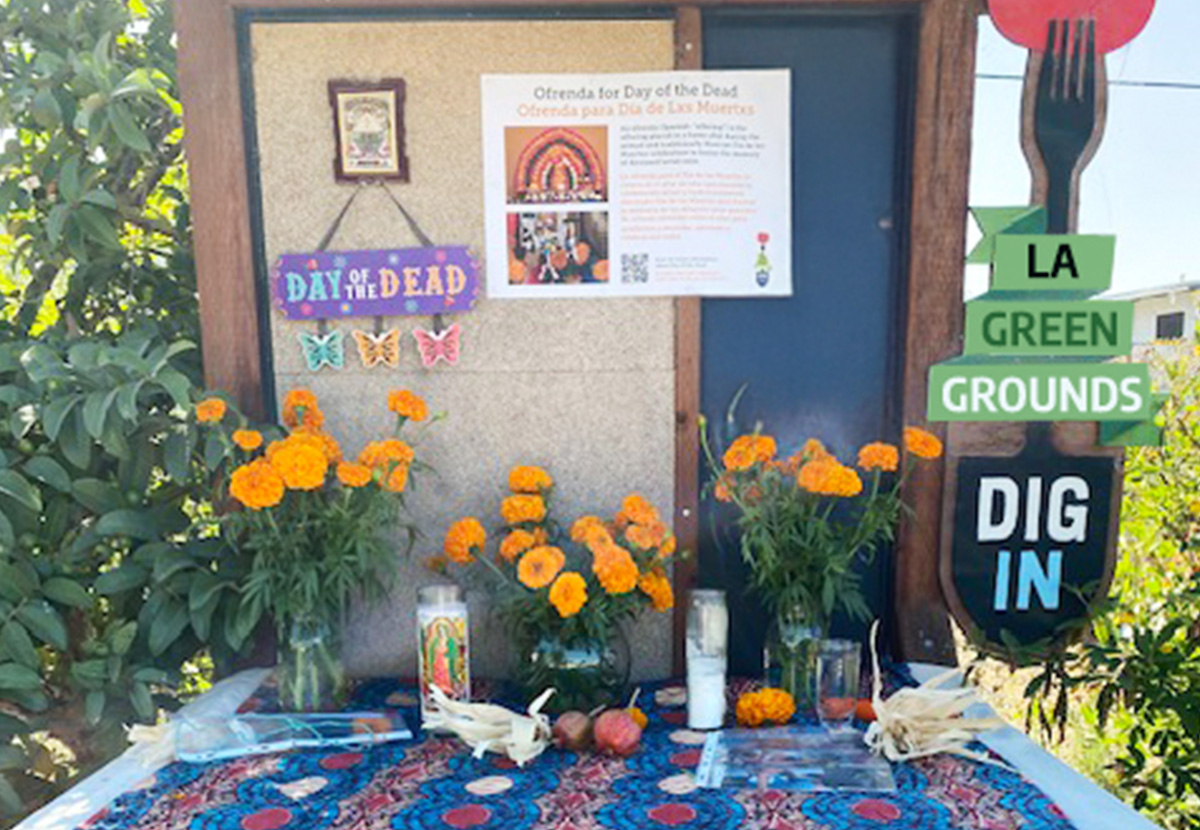
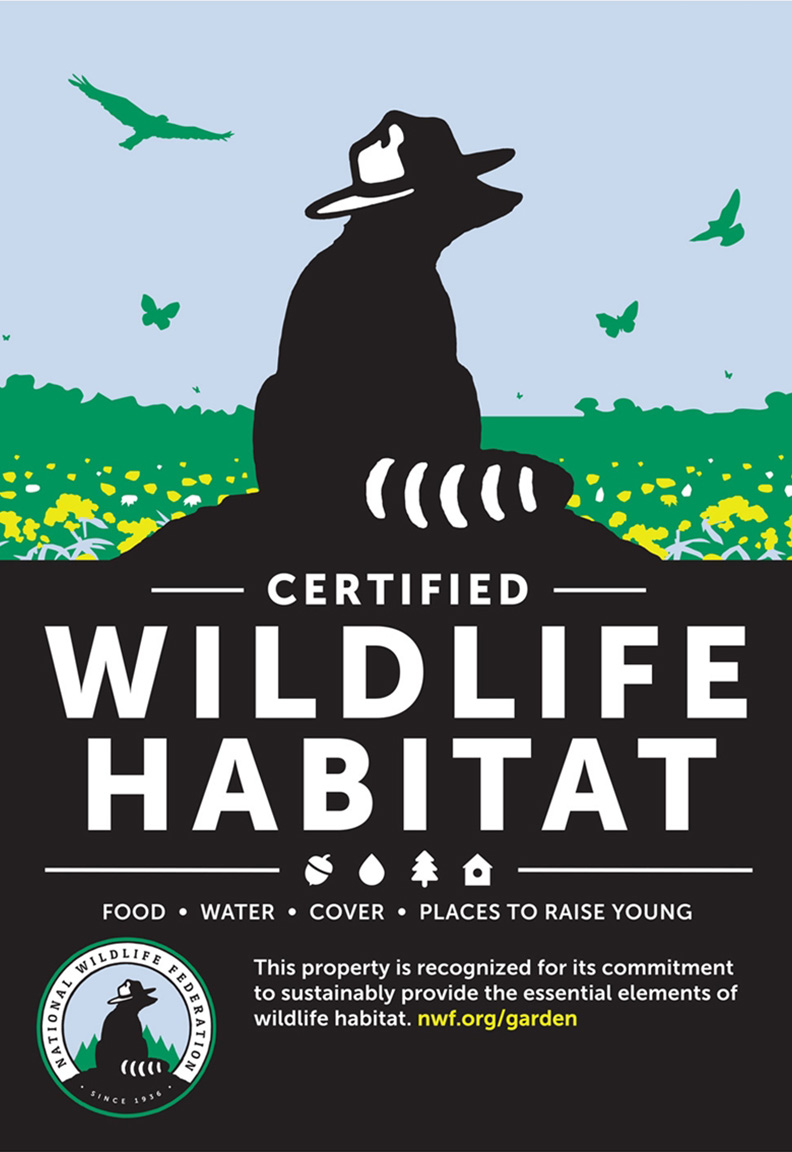
FLORENCE HOSTS UNITED NATIONS TOUR OF LAGG GARDEN
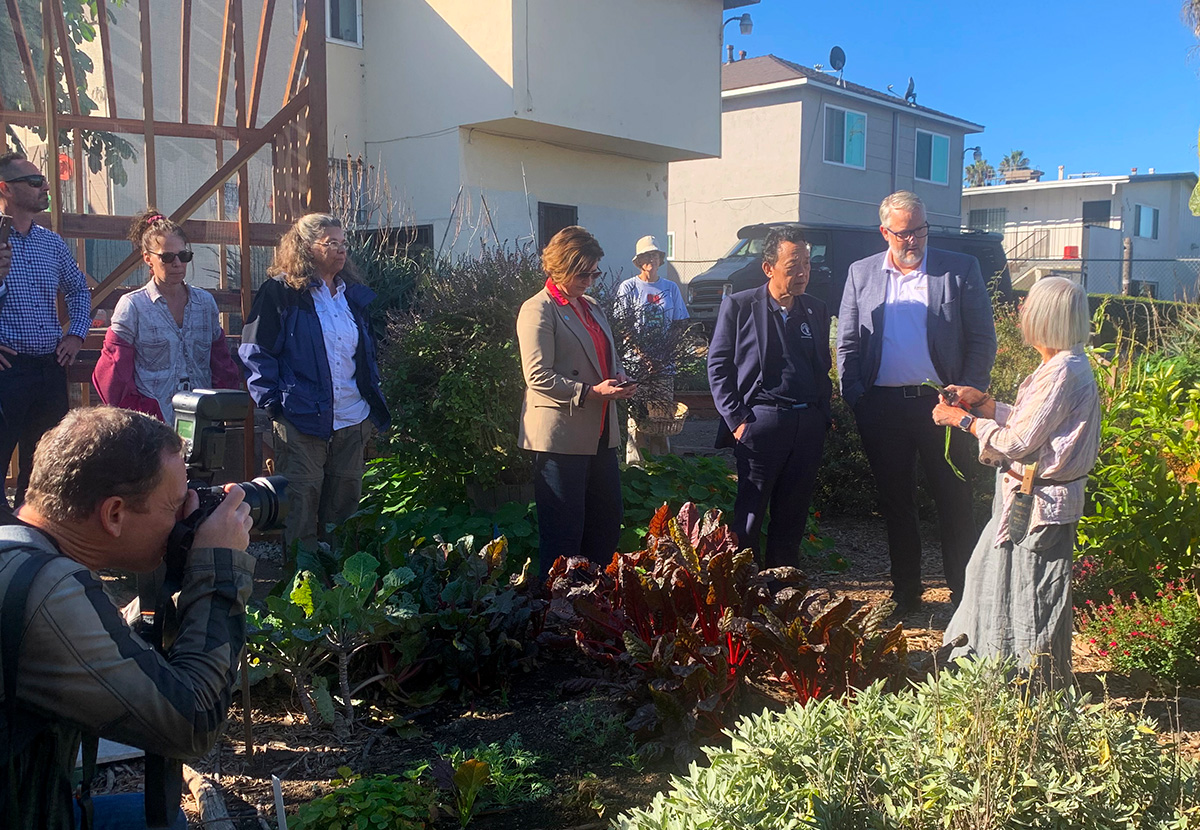
In November 2024, Florence was honored to host Director-General of the Food and Agriculture Organization of the United Nations, Dr. Qu Dongyu of a tour of LA Green Grounds' teaching garden. Dr. Dongyu strongly advocates the transformation of agrifood systems and supports the Green Cities Initiative that focuses on improving urban green economy and resilience of urban food systems.
Coincidentally, Florence first experience speaking to an audience was in elementary school for a United Nations sponsored event. Approached by her teacher, students from the schools were being sought to speak at the Shrine Auditorium for the UNESCO program. Her teacher recognized that Florence had the ability to handle this. With ease, she delivered her speech on the importance of health in the world.
MOVING OUTWARD TO OVERCOME CHALLENGES
Growing up, Florence was an only child and didn't have any older sibling mentors. Instead, her mother Masayo suffered from schizophrenia and paranoia and was unable to nurture young Florence. Masayo believed someone was trying to kill her daughter and would bang on Florence's bedroom door in the middle of the night asking if she was alive or did they kill her? She would scream at the voices she heard in her head.
Understandably, Florence did not want to invite friends over to her home. By way of compensation, she spent a lot of time outside the house. She made friends with people in her neighborhood and became outgoing. She spent and enjoyed much of her time outdoors.
HAVING ONE SUPPORTIVE ADULT
Florence recalls an essay she read (coincidentally written by a United Nations ambassador) that impacted her significantly. The writer posited that a child can live in a grave situation, but having at least one supportive adult can make the difference for a positive outcome in his/her life.
Fortunately for Florence, she had that one adult her father, Minoru. He was calm, rational, and intelligent. Florence credits him for nurturing her confidence and curiosity. “I think that relationship made me think of myself as a person, not a girl. He taught me to not be afraid of challenges and think about how you can achieve something. We would talk about all kinds of things. He'd call me out from my room to watch the State of the Union given by the President. I came to learn what was important, and it wasn't clothes or how I cooked. She recalls her father telling her if she doesn't understand something to ask questions. “A person who doesn't ask questions, will never learn anything new.”
Florence would constantly be bubbling up with ideas and share them with her father. He would always listen to my ideas. He never scolded her. Never criticized her. But also told her, “When you start something, you have to finish it.” “That was an important message to me. I learned not to be a frivolous person. I must think out how am I going to make an idea work.” Florence is a pragmatic person.
FLORENCE'S PHILOSOPHY
“My long-standing view — and hopefully reflected in the way I treat others — is that we need to stop separating ourselves from other beings. I'd prefer a more holistic view of people, their appearance, religions, cultural practices, etc. As humans (one species), there are a lot of shared qualities, certainly shared aspirations and wishes — a better life for our children, a safer, healthier world, more understanding, less hate, more peace, less anxiety and fear.”
“We need to create more places to meet face-to-face and experience real life vs. via remotely through email, texting, and social media."
“This is why LAGG has community events like our Story Time for children where they can touch the dirt and plant seeds. Or our cultural-sharing event so we can learn from each other and find commonalities and bond.”
WORDS OF ADVICE
“First, think about what you'd like to do and what is important to you. What do you want to see changed in life? To start, think big. How can you make effective positive changes?"
“And then, create a step-by-step plan in realistic, practical steps, i.e., first step, second step, third step, etc."
“Then, get start on it. Do something about it."
“When you've launched and are doing it, do not give up."
“Sometimes your end goal is not clear in the beginning. It may be big and vague, e.g., end hunger. In this case, think of practical ways to start. At what level do you want to start? E.g., grocery stores, food waste, etc. Decide upon a realistic option. Then make a good plan and understand the ramifications."
“Find an ally, e.g., a relative or friend, to help you stay positive. When you dream, find the positive. Instead of thinking, why we can't do something, think what we can do.”
REWARDS IN MENTORING AND TEACHING
“Mentoring people is important,” says Florence. “I love teaching. I love when I see the look into their eyes. They get big. The sudden understanding is very noticeable. That's my payment.”
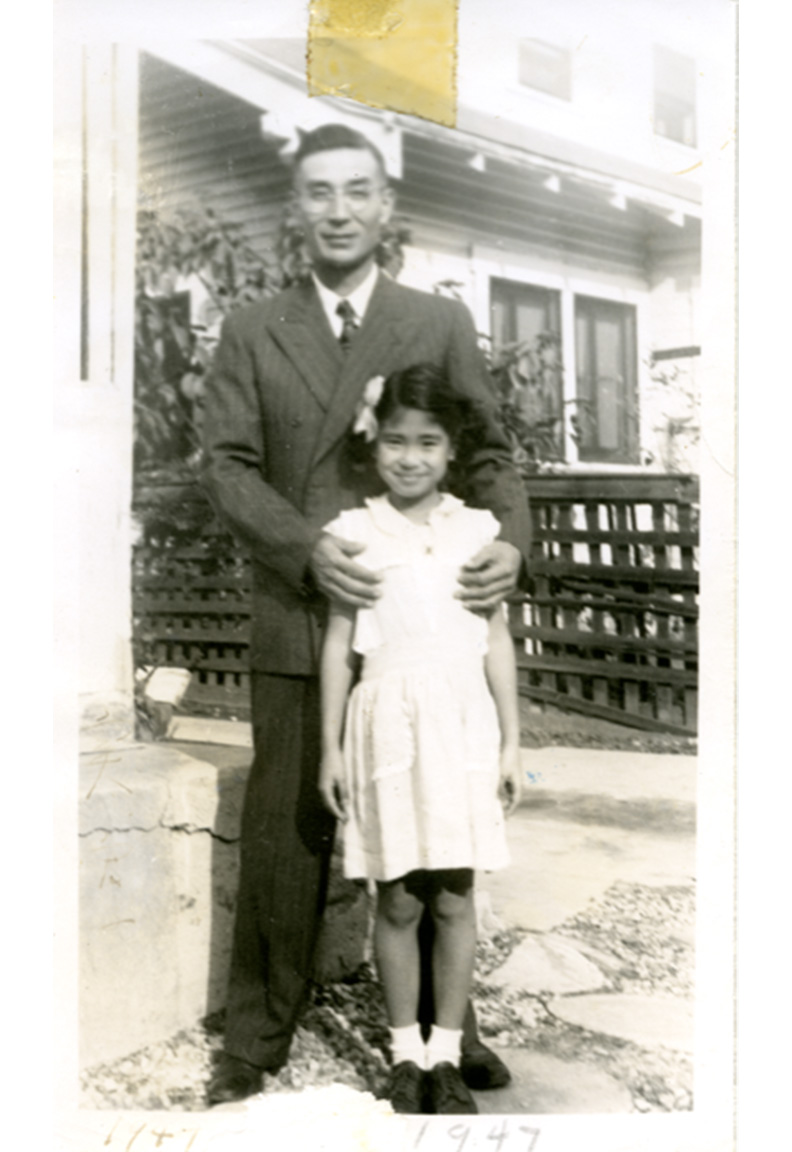
Ivory Freeman feels connected to LAGG's mission from personal experience. While growing up under the care of her grandmother Bessie Freeman in South Central Los Angeles, there were many mouths to feed in their home, so her grandmother supplemented the larder by growing a garden. Bessie also helped her neighbors by sharing her harvest of seasonal vegetables with the neighbors who would stop by.
Food insecurity is real and exists. There are many children who are homeless and don't have enough to eat. LA Green Grounds' mission is to enable residents to create their own edible gardens and create a sense of community in South Los Angeles where grocery options are limited and there are not enough fresh fruits and vegetables. “What Florence does is very impactful; it is a way to empower people,” says Ivory. “It's a great way to help the community to become self-sufficient.”
References and resources:
Florence Nishida Hendler has given numerous presentations and classes across Los Angeles County, and has been featured in many media outlets, including PBS show America Outdoors with Baratunde Thurston, LA Times, Natural History Museum's Angelenos Building Community, Discover Nikkei.org, American Gardener, West Magazine, Los Angeles County Supervisor Zev Yaroslavksy's website, Streetsblog LA, Kelly Eubanks Blog, Huffington Post, and PBS SoCal.

(323) 494-4005